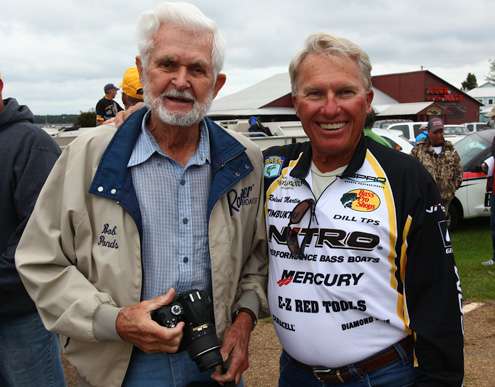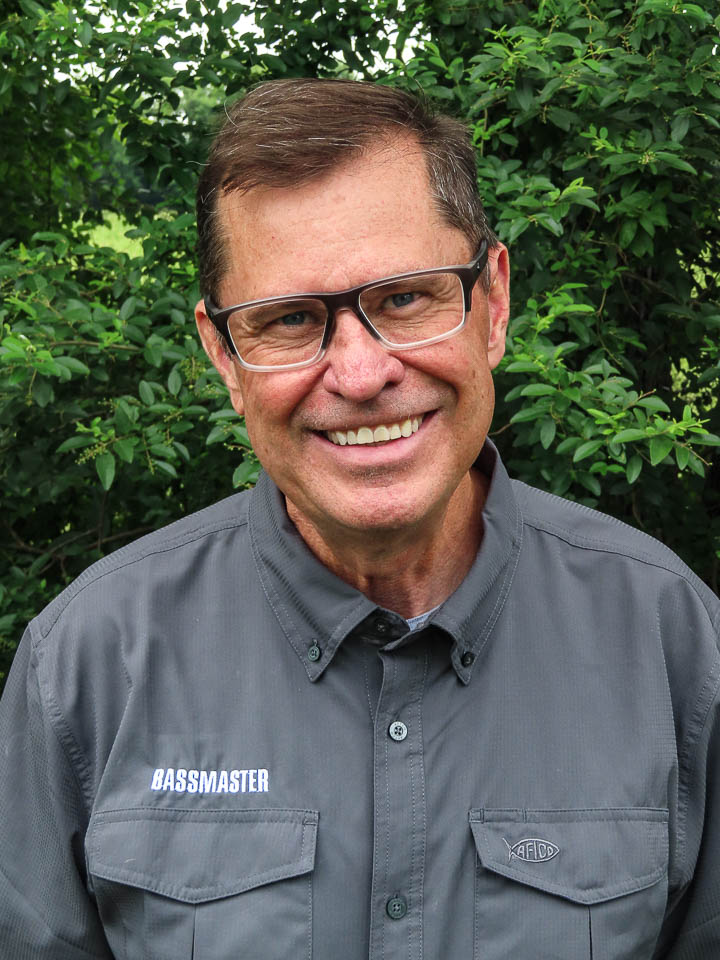
RIDGELAND, Miss. — Bob Ponds remembers the day he won $100 per pound for catching the biggest fish of the day in a B.A.S.S. tournament. Getting his reward required a trip to a casino in Las Vegas.
That was convenient since Ponds was in town anyway for the 1971 Bassmaster Classic. The lucky 5-pounder was caught from Lake Mead on a purple spinnerbait. Ponds cashed in his prize at the casino in the Union Plaza Hotel, headquarters for Classic I.
The caper was just one of many dreamed up by Ray Scott during the first Classic. Ponds told the story while attending the Bass Pro Shops Bassmaster Central Open #3. He was on the shore of Ross Barnett Reservoir to watch his son Pete, a second-generation pro who competes at the Bassmaster Elite Series level.
Ponds recalled that getting to Las Vegas was another escapade dreamed up by Scott, whose goal for it all was getting press attention focused on the fledgling B.A.S.S. organization.
Ponds and his wife began their week by flying from their hometown of Jackson, Miss., to Atlanta. There, they boarded a chartered airliner with a few friends and more strangers for a destination unknown. The passengers were the spouses of the 24 anglers and the press corps invited to cover the first world bass fishing championship.
“We thought we were headed somewhere east, since we’d already come from Jackson,” recalled Ponds. “We had no idea where we were going, though, because Ray wouldn’t say.”
He’d planned it that way. Ponds relinquished the thought of fishing in the east as the plane passed over the state of Texas. That’s when Scott stood in the center of the aisle, opened an envelope, and announced the “mystery lake” as Lake Mead.
“All I’d ever known about Lake Mead until then was that it was backed up by the Hoover Dam,” said Ponds, who at the time was 38 years old.
As it turned out, the contestants arrived at the lake before the all of the official boats. Those were Rebel Fastback bass boats powered by 90 horsepower MerCruiser inboard-outboard engines.
Scott made do by pairing up the contestants for the one and only day of practice until all of the boats arrived in Las Vegas. A young Roland Martin was Pond’s practice partner.
At one spot, Ponds’ purple spinnerbait got entangled in a brush top. The wiggle action he imparted to free the lure tricked a 6-pounder into taking the bait. The fish was released with Ponds intending on returning to catch it the next day.
“We got back to the boat ramp and all I remember was Roland running away, because he was in a big hurry to go find a purple spinnerbait at a tackle shop,” he mused.
Martin found the spinnerbait. It’s unknown if he caught the same fish, although his 6-pound, 9-ounce bass was the biggest caught during the Classic.
Ponds earned his Classic trip after a successful start on Scott’s fledgling tournament trail. He’d scored a third- and fourth-place finish in the 1970 and 1971 Rebel Invitational events held on Ross Barnett.
His B.A.S.S. angler profile lists a total of five events, although unofficially it could be six tournaments in all. That’s because he was one of the original 106 anglers invited to compete in Scott’s 1967 All-American tournament, the forerunner to the Bassmaster Tournament Trail.
“Ray was always prospecting back then,” recalled Ponds. “He got all these guys talking in different towns to get us interested in fishing his tournament.”
Ponds came from the Jackson Bass Club; one of the first to affiliate with B.A.S.S. and a club he helped organize. His second-day partner at the All-American was one of the “Memphis Gang.” He was paired with Bill Dance and the two anglers remain in contact.
Ponds is retired from the National Weather Service, although he’s very much involved in the fishing industry as a lure designer for Bandit Lures.
Ponds readily credits Scott for the progress made over the nearly five decades of modern bass fishing.
“It’s just amazing what’s happened since he came around,” he said. “Technology has certainly put it on the fast track, but it still comes down to Ray’s ingenuity and dream of making bass fishing a competitive sport.”
And it took pioneers like Ponds, Martin, Dance and others to lay the foundation for the phenomnenal success story called B.A.S.S.

